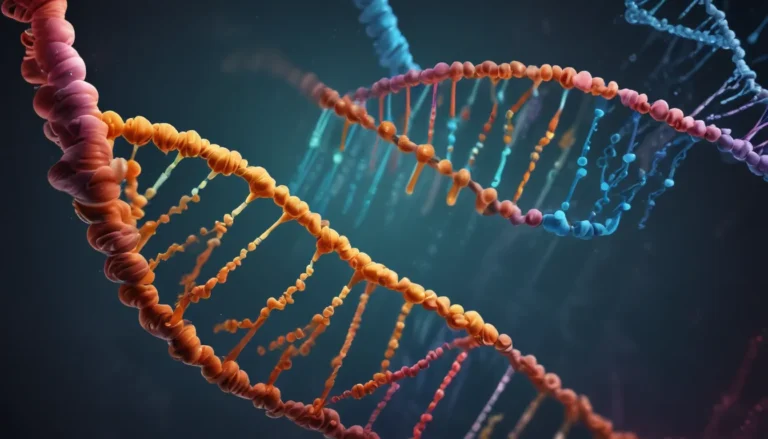A Note About Images: The images used in our articles are for illustration purposes only and may not exactly match the content. They are meant to engage readers, but the text should be relied upon for accurate information.
Passive immunity is a remarkable aspect of our immune system that offers immediate protection against various pathogens without the need for the body to mount its own immune response. This form of immunity, acquired from external sources, is crucial in defending our bodies against infections during early life stages. From maternal antibodies passed on to newborns to the administration of pre-formed antibodies for specific diseases, passive immunity serves as a powerful defense mechanism that deserves attention and appreciation.
Understanding Passive Immunity: What You Need to Know
Passive immunity is a type of immunity acquired through the transfer of pre-formed antibodies to an individual. Unlike active immunity, which is developed by the body’s immune system, passive immunity provides immediate protection against specific pathogens. Natural passive immunity occurs when a mother passes antibodies to her baby through breastfeeding or placental transfer during pregnancy, offering protection from infections in the early stages of life. On the other hand, artificial passive immunity involves giving pre-formed antibodies obtained from another source, commonly used in the prevention or treatment of infectious diseases.
Key Takeaways:
- Passive immunity offers immediate protection through transferred antibodies, benefiting newborns and immunocompromised individuals.
- It provides rapid defense against targeted diseases, but the immunity is temporary and requires active immunity for long-term protection.
Advantages and Applications of Passive Immunity
Temporary Protection with Rapid Onset of Action
Passive immunity provides temporary protection as the transferred antibodies gradually decrease over time, requiring the individual’s immune system to develop active immunity for long-term defense. One of its advantages is the rapid onset of action, where the pre-formed antibodies immediately bind to and neutralize antigens, providing instant defense against pathogens.
Targeted Defense and Immunization
Passive immunity offers protection against specific pathogens for which antibodies have been transferred, proving helpful in cases of known exposure to particular infections. It is often utilized for individuals with weakened immune systems, such as those undergoing chemotherapy or organ transplant recipients, providing an additional layer of protection against infections.
Prevention and Treatment of Diseases
Passive immunity has been instrumental in preventing various diseases, such as providing temporary protection against hepatitis A, measles, and tetanus through the administration of immune globulins. In the treatment of rabies, passive immunity plays a crucial role, with rabies immune globulin administered to individuals potentially exposed to the rabies virus to prevent disease onset.
Healthcare Worker Protection and Travelers’ Immunization
Passive immunity is used to protect healthcare workers against infections like hepatitis B and varicella-zoster virus. It is also recommended for travelers visiting regions with high disease risks by receiving immunoglobulins for temporary protection against diseases like hepatitis A or typhoid fever.
Exploring the Role of Passive Immunity in Health and Medicine
Significance in Newborn Health
Passive immunity plays a vital role in maintaining newborn health, with maternal antibodies transferred through breast milk protecting infants from infections while their immune systems develop. Understanding passive immunity can help healthcare professionals utilize its potential in various medical contexts, including immunotherapy for conditions like cancer and autoimmune diseases.
Limitations and Considerations
Passive immunity provides temporary protection without involving memory cells, as the recipient does not generate antibodies. While generally safe during pregnancy, it is crucial to consult healthcare professionals for any medical interventions to ensure safety and effectiveness.
Unveiling the World of Antibodies and Immunological Defenses
Passive immunity is just one facet of our immune system’s intricate workings. Delve deeper into the world of antibodies, nature’s powerful defenders against pathogens, with captivating insights into colostrum, immunoglobulins, and more. Explore the roles of these essential components in our body’s defense mechanisms and gain a greater appreciation for the complexities of our immune system.
Conclusion: Harnessing the Power of Passive Immunity for Healthier Futures
Passive immunity offers immediate protection against pathogens, highlighting the importance of vaccination, maternal antibodies, and antibody-based therapies. Its applications in medicine and ability to confer temporary protection against diseases make it a crucial tool in the fight against infections. By understanding and harnessing the power of passive immunity, we can enhance immune responses and work towards healthier, more resilient futures for all.
FAQs: Your Questions Answered
- What is passive immunity?
- How is passive immunity acquired naturally?
- What are the advantages of passive immunity?
- How is passive immunity obtained artificially?
- How long does passive immunity last?
- Can passive immunity replace active immunity?
- What is the role of passive immunity in vaccination?
- Does passive immunity contribute to herd immunity?
- Are there any risks associated with passive immunity?
- Can passive immunity be used for the treatment of diseases?
Trust in our commitment to providing trustworthy and engaging content as you explore and learn about the captivating world of passive immunity and the immune system.






